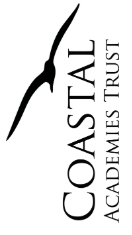- Home
- Curriculum
- Subject Information
- Mathematics
Mathematics
CURRICULUM INTENT STATEMENT
In the Maths department we aim to embed the whole school curriculum intent, through and beyond our curriculum. We do these in line with the three principles across the school.
| Globally Diverse | Ambitious for the Future | Inquisitive Learners |
|---|---|---|
|
We explicitly address the following financial topics:
In Maths we also aim to raise awareness of how mathematics can be used to mislead, Teachers identify this through:
Students are introduced to famous mathematicians around the world and their contributions to the mathematics we study today. |
|
|

Key Stage 3
In Key Stage 3, we have a Mastery curriculum, allowing students to develop both fluency and understanding. They build on their knowledge, developing the idea that we can always further our knowledge and understanding of different topics. We use rich open tasks, developing resilience, independence and ownership of learning. Clear written communication and presentation is promoted which students can use in all aspects of their learning. We use the White Rose scheme of learning which promotes mastery through in-depth discussion and investigation.
In terms of enriching the curriculum, we provide opportunities for students to explore their knowledge and face challenges. We have an annual ‘Maths Week’ which presents Maths in real life and problem solving situations to help students make links between the subject and their everyday life.
Key Stage 4
In Key Stage 4 students study the Edexcel GCSE Mathematics course. We have designed our curriculum to allow for interleaving of topics and further development mastery, problem solving and resilience. Homework is set regularly to allow our students to develop the skills to become independent learners who take ownership of their own learning. Students use Tassomai and Mathswatch online programs to encourage ongoing revision and reviewing of topics. Financial Maths is a key component of the curriculum as we seek to develop skills to manage real life situations involving compound interest, depreciation, loans and mortgages. Through work on representing and analysing data, students are able to think critically about information that is presented to them as well and to test the validity of this data.
Key Stage 5
In Key Stage 5 students can study IB Mathematics Applications and Interpretation (Standard Level). The aims of this course is to enable students to:
-
develop mathematical knowledge, concepts and principles
-
develop logical, critical and creative thinking
-
employ and refine their powers of abstraction and generalisation.
Students are also encouraged to appreciate the international dimensions of mathematics and the multiplicity of its cultural and historical perspectives.
The Internal Assessment stretches students beyond the outlined curriculum, giving opportunities for personal investigation. The course also encourages students to further develop their understanding through investigations and applying these to real life.
Students are given the opportunity to teach each other, becoming responsible for others' learning as well as their own.
